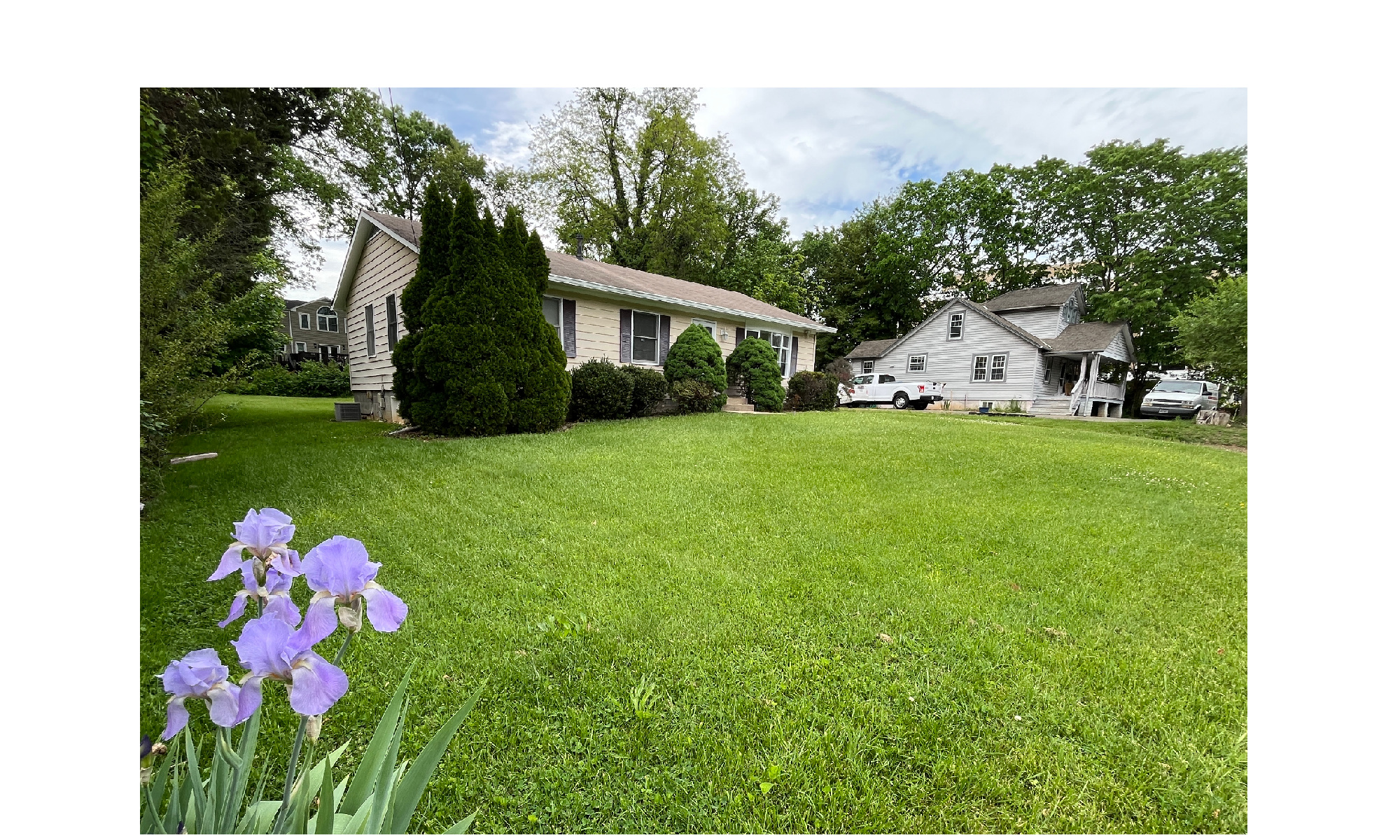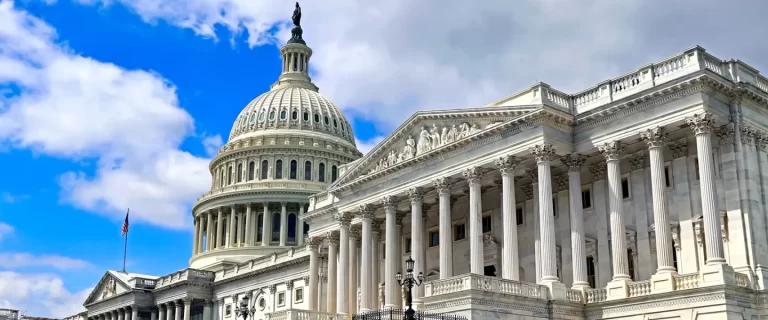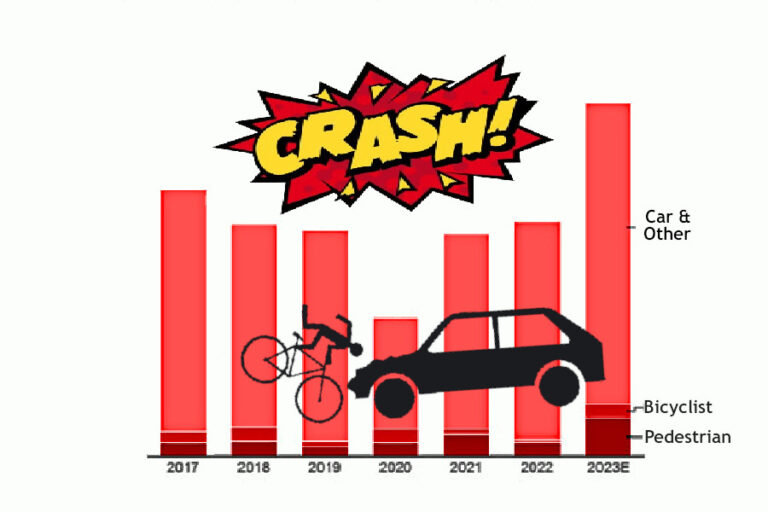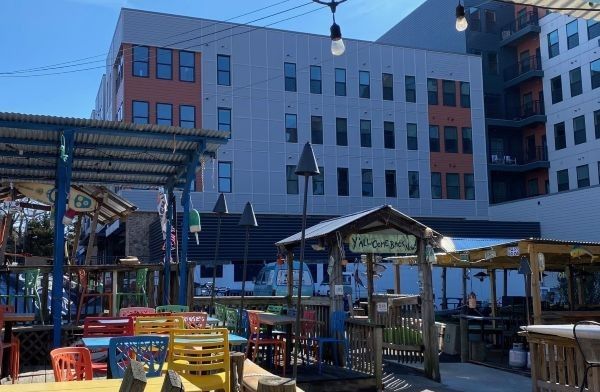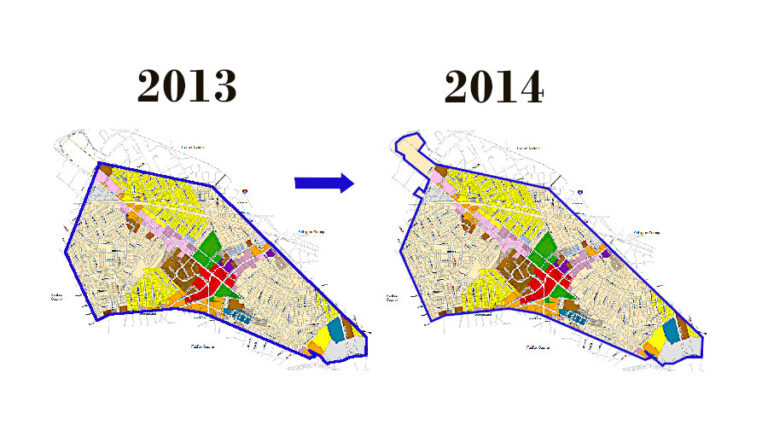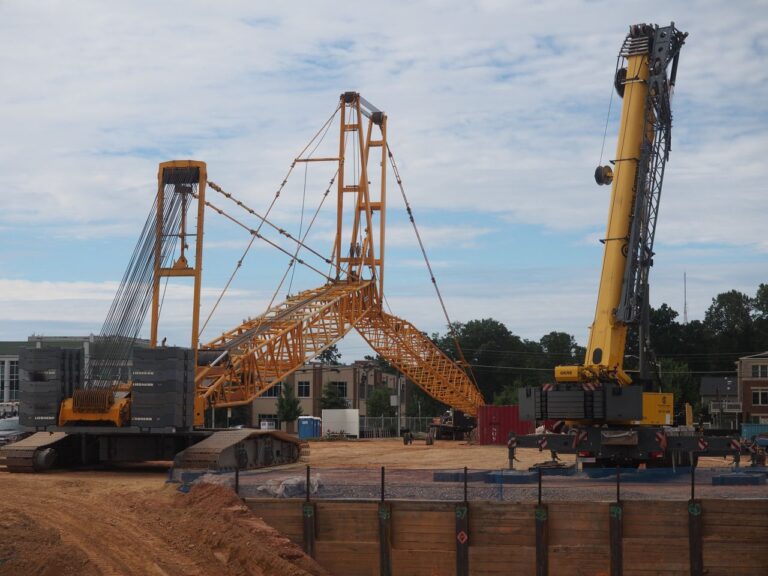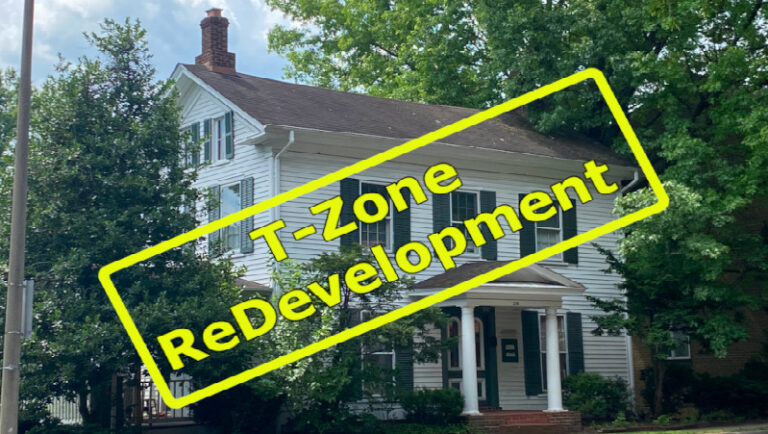Proposed Rezoning at 106-108 S Lee Street to T Zone Sparks Community Concerns
By Paloma Beneito, a resident on S Lee Street.
(Above: Photo of 108 and 106 S Lee Street.)
A rezoning request from Madison Homes
A proposal to rezone the properties at 106 and 108 South Lee Street is currently under consideration by the City of Falls Church, and it’s generating significant discussion within the community. The applicant, Madison Homes, is requesting a change in zoning from the current R-1A (Single-Family Residential) to T-1 or transitional. This request, detailed on the City’s website (S Lee Rezoning), has prompted a letter of concern from residents to the Falls Church City Planning Commission and City Council Members.
The core of Madison Homes’ proposal is to replace the two existing single-family detached dwellings with a twelve (12) unit townhome development. This represents a substantial increase in density for the combined parcels. The move to T-1 would be significant as the new zoning changes would allow for higher densities and heights, smaller setbacks, and greater lot coverage in a residential district. A key aspect highlighted by concerned residents is the “by-right” development authority associated with T-1 zones, which could allow the project to proceed with minimal discretionary approvals once the rezoning is in place, provided the plans comply with the new zoning regulations.
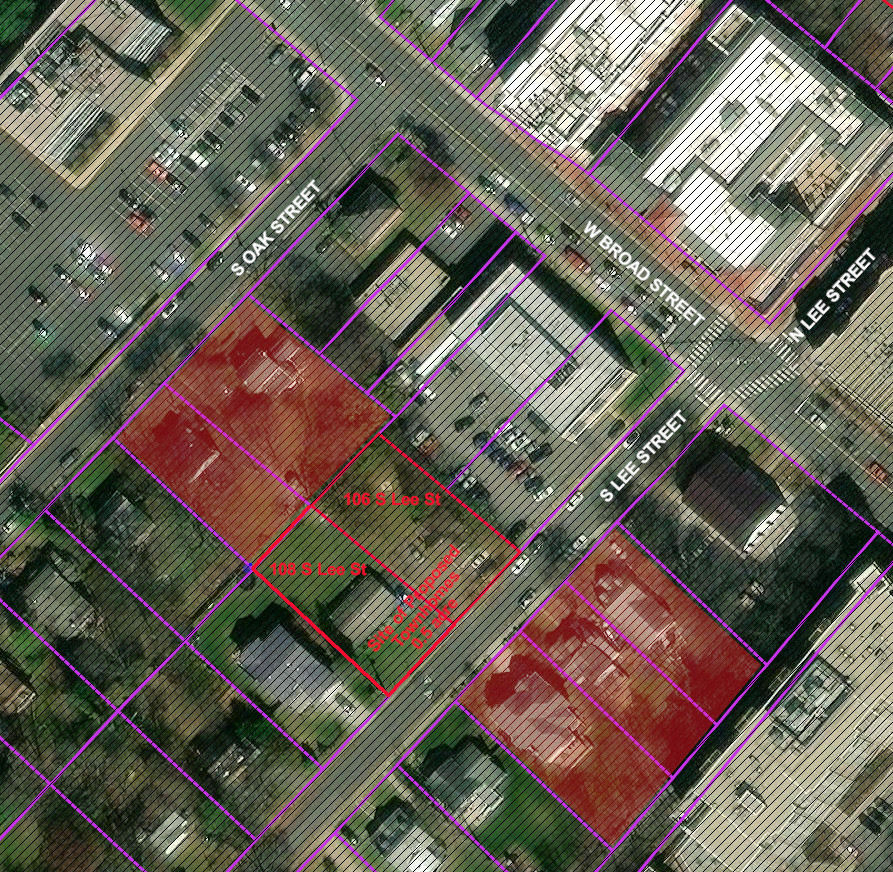
Community concerns about the 106-108 South Lee Street proposal
This potential shift has raised several key issues for neighboring residents, who articulated their concerns in a recent letter to the Planning Commission and City Council Members:
- Impact of Up-zoning from R-1 to T-1 and “By-Right” Development: Residents express apprehension about the precedent this up-zoning could set, potentially leading to the replacement of other R-1A homes with larger, denser T- Zone developments due to recently granted ‘by-right’ development authorities. They urge the City Council to proceed cautiously with such significant zoning changes that could diminish neighborhood influence over development.
- Infrastructure Strain: A primary concern revolves around the potential strain on existing infrastructure, particularly stormwater and sewer systems, which are already known to have deficiencies in the area. Residents believe that adding 12 townhomes to the 106-108 South Lee Street site could exacerbate these issues. They are requesting that the Planning Commission withhold approval until a detailed City study on infrastructure and financial risks is conducted, encompassing stormwater, sewer, roads (traffic and parking), schools, and other City services. They emphasize that T-Zone developers typically address only on-property impacts, not broader infrastructure needs of the surrounding neighborhood let alone the City as a whole.
- Lack of Comprehensive Impact Studies: The residents argue that approving new, denser ”by-right” projects in residential neighborhoods without a thorough understanding of their broader impact is premature. They point to the financial burdens the City already faces with infrastructure modernization, rising student enrollment, and potential funding reductions, suggesting that increased density without careful planning could worsen these challenges for taxpayers. They cite Arlington County’s work on a stormwater investment plan as an example of proactive infrastructure planning.
- Resident Participation and Transparency: The letter calls for a robust, open, and transparent process for considering the up-zoning of R-1A properties to T-Zone or higher. Residents insist on engagement protocols that go beyond procedural minimums and avoid what they perceive as opaque advisory committees favoring developers. They express concern that recent T-Zone rule changes granting ”by-right” powers were implemented at the behest of developers, ignoring resident input.
- Piecemeal Rezoning vs. Comprehensive Planning: Residents recommend a comprehensive approach to future zoning changes rather than piecemeal, plot-by-plot rezoning. They argue that such an approach can dilute resident voices and lead to cumulative negative impacts. They also note that the City’s 2006 “future zoning” map is outdated and that the significantly expanded ”by-right” authorities in T-Zones make a direct up-zoning from R1-A potentially inappropriate, suggesting that alternative denser housing options like duplexes or modest townhomes might be more suitable.
A precedent for future zoning decisions?
In conclusion, this rezoning proposal for 106-108 South Lee Street represents a significant potential change for the neighborhood and raises important questions about density, infrastructure, and the future of residential zoning in Falls Church. The concerned residents are urging the Planning Commission to proceed with caution, prioritize thorough studies and transparent processes, and carefully consider the broader impacts on the community before making a decision. The outcome of this proposal could have wider implications for future zoning considerations across the City.
Concerned residents encourage community members to stay informed and write to the Planning Commission and the City Council to share their concerns. These neighbors note the upcoming City Council Work Session on Monday, June 2, 2025, where this proposal will be discussed.

